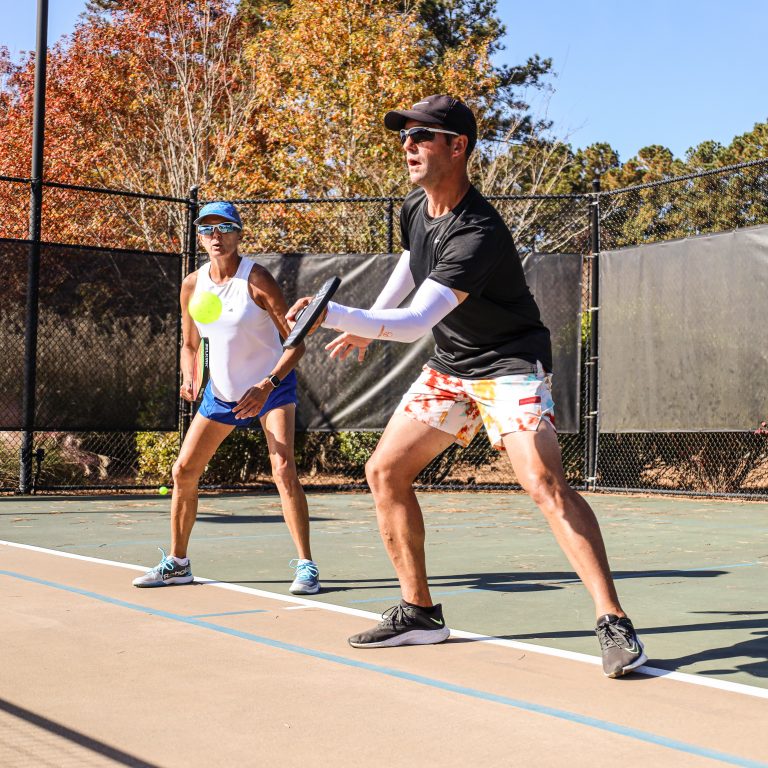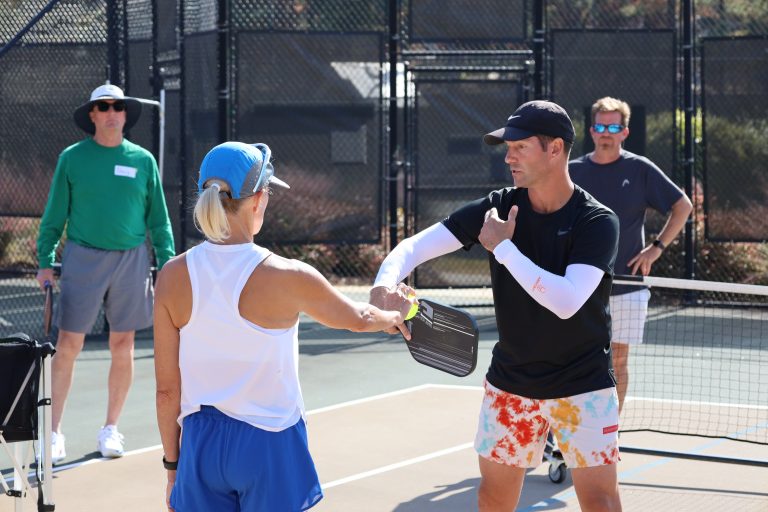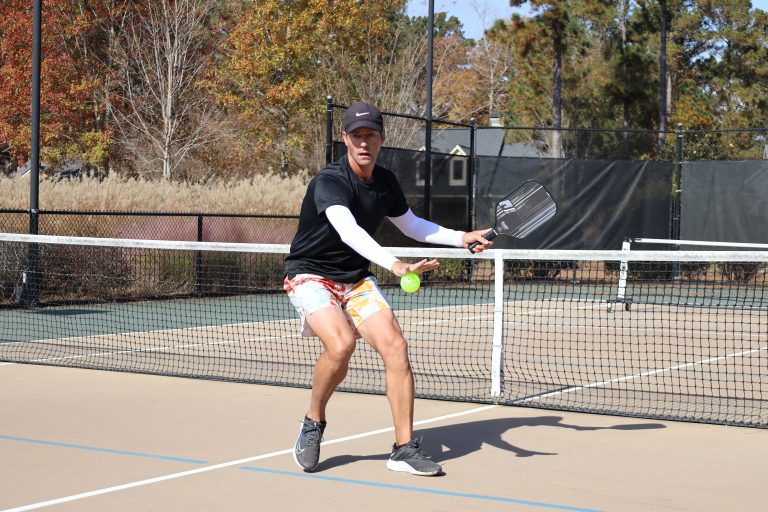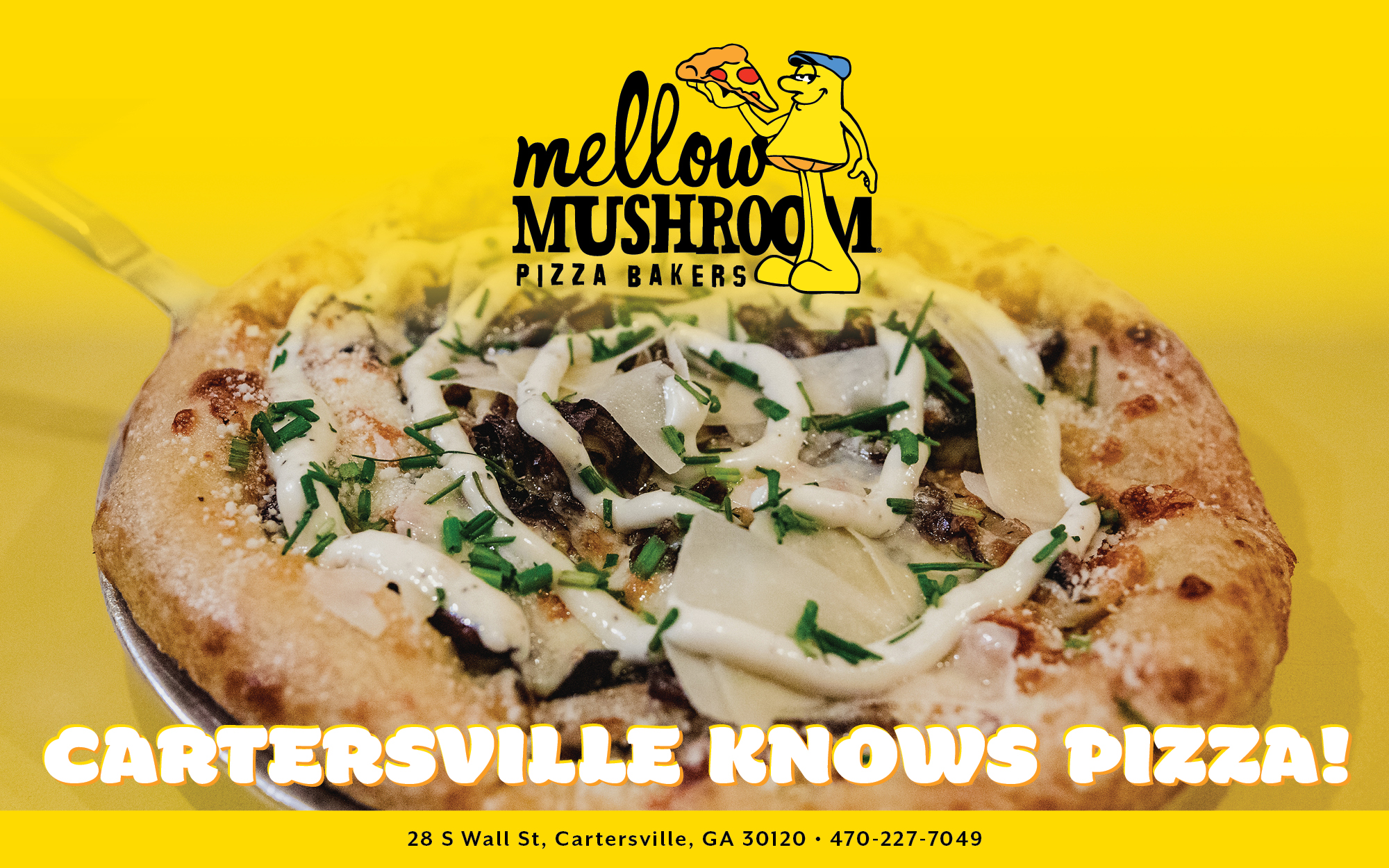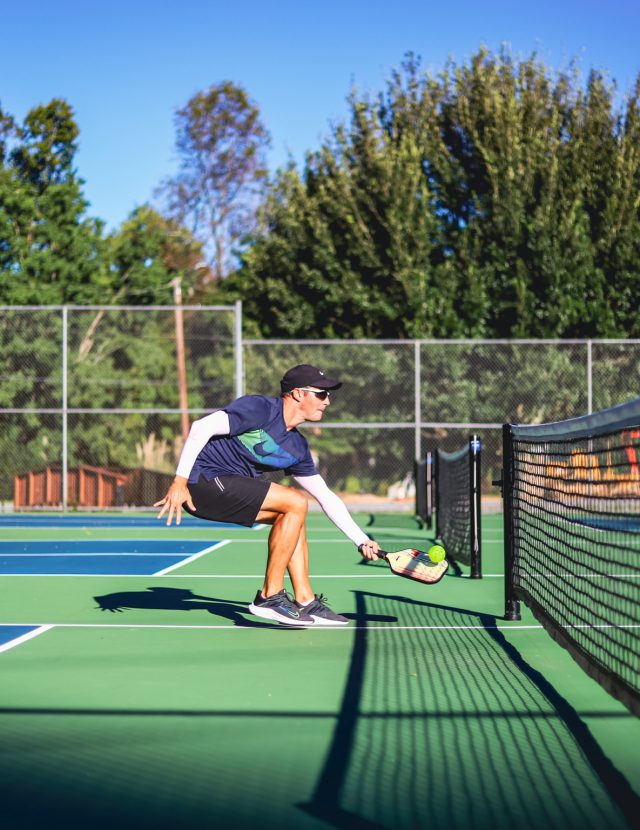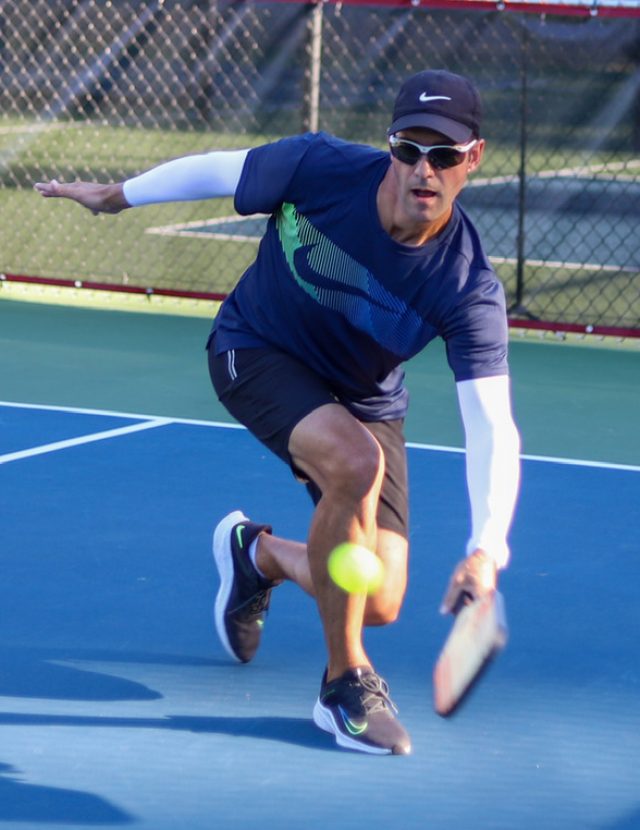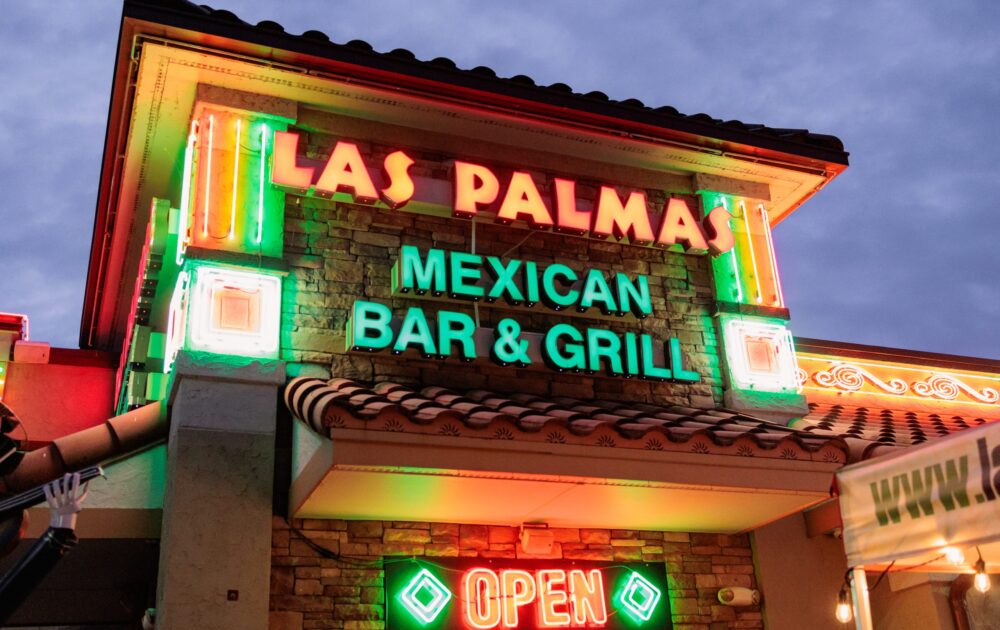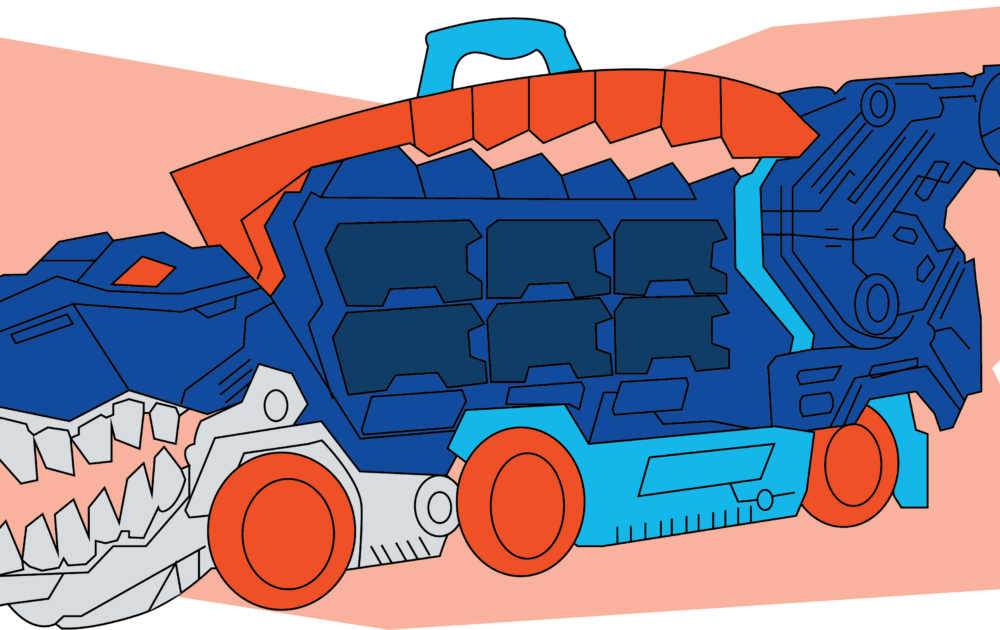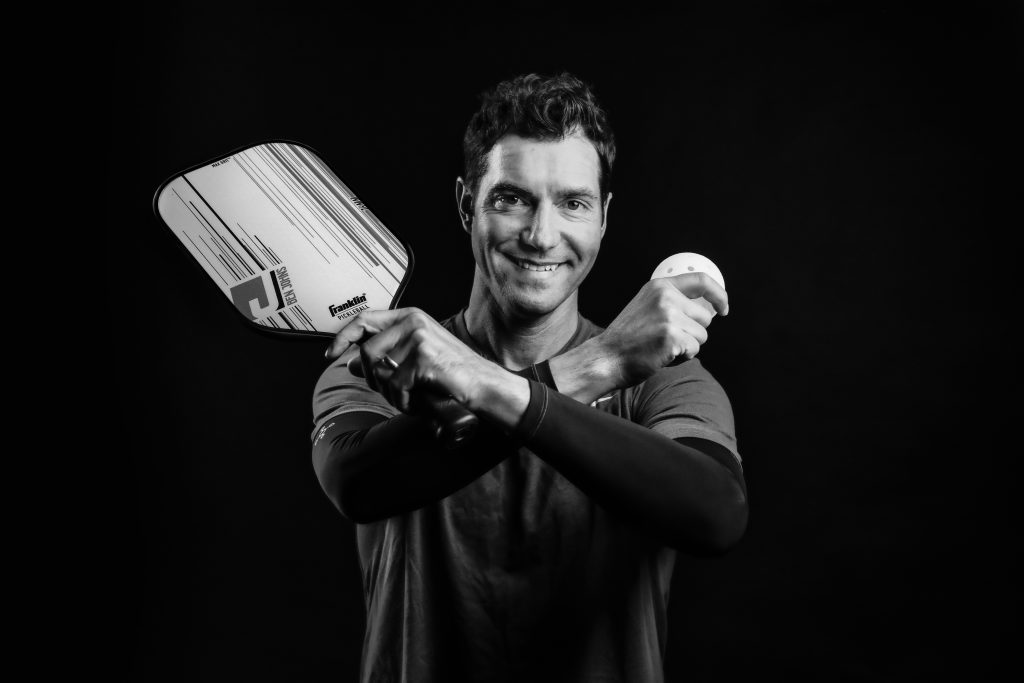
Photos Ben Bramblett and Ginny Jarvis
FRIENDLY. SOCIAL. COMPETITIVE. FUN. These are just a few words commonly used to describe a game that is less than 60 years old but has spread across America and Canada and is now making inroads in Europe and Asia. This is pickleball, a game that—thanks to its simple rules and small court—is easy for first-timers to pick up but also offers a fast-paced experience for those with more competitive natures. It combines elements of tennis, badminton, and ping-pong.
Its scoring system is similar to that of badminton. Pickleball, which can be played as singles or doubles, features fast-paced volleying, a paddle that is smaller than a tennis racket, and a plastic ball with holes in it. Pickleball can be played indoors or outdoors on a court that is close in size to a regulation doubles badminton court—measuring 44×20 feet—and includes a modified tennis net. The smaller court enables everyone to run it, regardless of age or skill-level.
In the early days
Those unfamiliar with the game may be surprised to find its roots go all the way back to 1965. In that summer, U.S. Congressman Joel Pritchard (from Washington state) and a friend, businessman Bill Bell, finished a day of golfing and returned to Pritchard’s home on Bainbridge Island, WA.
There, they found their families lounging about, bored and complaining of nothing to do. Setting out to solve this issue, Pritchard and Bell rounded up some ping-pong paddles and a perforated plastic ball, and they invited their family members to join them on the property’s badminton court. The players soon discovered that the plastic ball bounced so well on the asphalt court they didn’t need the net at the badminton height of 60 inches, so they lowered it to 36 inches.
This fledgling sport began to take on its now-recognizable form on the following weekend, when a family friend, Barney McCullum, came for a visit and was introduced to the game. He helped Pritchard and Bell create playing rules, drawing on those of badminton.
Bob O’Brian, Pritchard’s neighbor and friend, constructed the first permanent pickleball court in his backyard in 1967. Just five years later, a corporation was founded to protect the creation of the new sport. By 1982, tournaments were being organized in Washington state by pickleball pioneer Sid Williams, and the sport was growing fast.
In 1984, the United States Amateur Pickleball Association was founded, and it published its first rulebook. In that same year, Arlen Paranto, an engineer for Boeing, made the first composite pickleball paddle. Paranto fashioned his paddles from the same materials used in making the floors and certain structural systems of commercial aircraft. Pickleball had officially arrived.
In those early years, pickleball was a game played mostly by the retirement community. However, over the last decade it has exploded among younger players. Today, 80% of the game’s growth has been in the under-65 demographic. By 1990, pickleball was being played in all 50 states, and now, 57 years after its invention, the game has maintained that same spirit of family-friendly competition, good sportsmanship, and camaraderie that inspired its creation on that badminton court on Congressman Pritchard’s property.
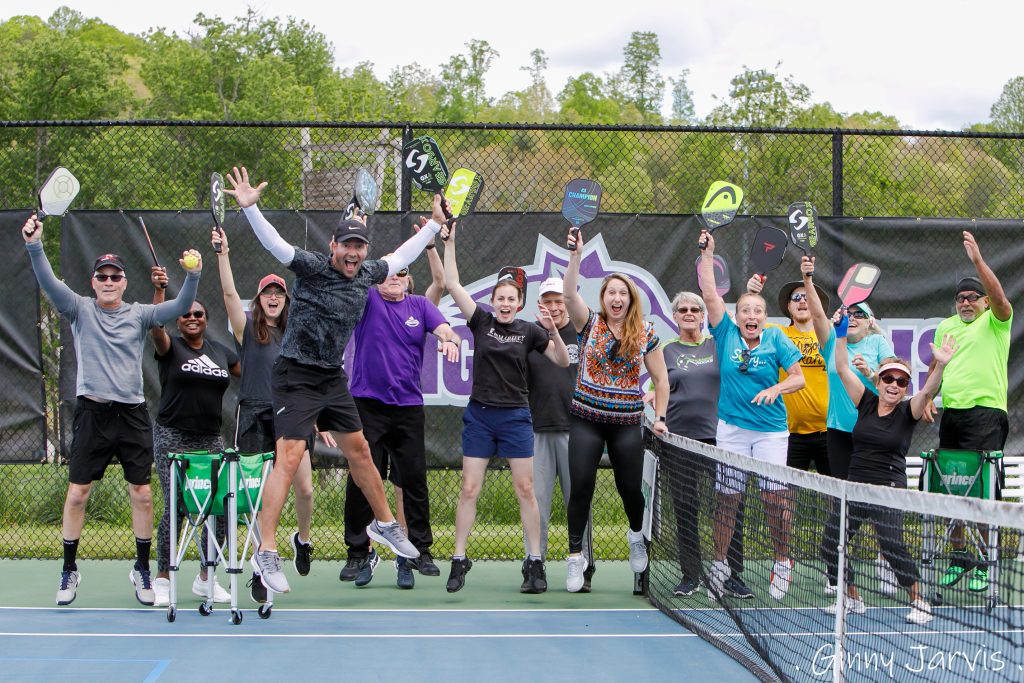
From the UK to GA
Pickleball is fast gaining popularity in Northwest Georgia, largely thanks to the work and enthusiasm of Mark Price, a professional sports coach for more than 25 years and a man who has loved and participated in many sports from a young age while growing up in Cheshire, England.
At the young age of 17, Price started coaching gymnastics with special needs kids in Wrenbury, UK. After leaving home at the age of 18, one of Price’s first jobs was as a volunteer instructor for an outdoor education center, teaching rock climbing, kayaking, mountaineering, caving, and other adventurous activities. He spent two years training and gaining the experience needed to become a fully qualified instructor in all these outdoor activities. “That was one of the most enjoyable times of my life,” Price says.
By 1995, Price felt he had attained all the training and experience he needed to find a great sports job in London, so he moved there. He soon found, however, that no such work was available, so he settled for a job in a café at a gymnasium. “That way,” he says with a laugh, “at least I would still be close to sports.”
Eventually, he got a job coaching basketball. He traveled internationally, to places like Nepal and China. “It was then I finally got paid to be a professional sports coach, and honestly, I cried when I received the offer letter,” Price says proudly. “From ages 16 to 21, I had dreamed of being a professional sports coach, and it finally happened for me. I traveled all over Hong Kong teaching multiple sports.”
In 1997, Price returned to England, but still found that coaching jobs were scarce. So, in the year 2000, he started his own sports coaching business to create work for himself. He says, “I traveled around to schools, offering professional coaching for different sports, and I ran after-school sports clubs. I’ve been coaching full-time ever since.”
Three and a half years ago, Price married Hannah Woody, an American, and moved to Rome, Georgia. “I couldn’t work for the first year I was here, and it was then that a friend introduced me to pickleball,” Price says. “Now, I must admit the name was a turn-off. I told my wife, ‘I’m not interested in playing a game called pickle.’ She quickly reminded me that while in England I had no problem playing another game named after a vegetable: squash. She was right, of course, and I fell in love with pickleball on day-one.”
A new obsession, a new opportunity
During that first year, Price played pickleball for three or four hours a day. “Until things reopened after the covid shutdown,” Price says, “the only sports you could do were outdoor activities.”
Price explains that the game is highly addictive, fast-paced, and very social. Players are physically close to their opponents, so there’s room for good-humored banter and camaraderie; they’re laughing and enjoying the fun of scoring points. “It’s really an interactive game,” Price says. “Even if you lose, it’s fun, and that’s the unique part of the game. It’s very similar to one-on-one basketball, as far as the banter goes.”
In 2020, Price started playing the professional pickleball singles circuit, competing against guys 20 years younger than himself. He points out, “They were fast, athletic, and skillful. That presented a challenge to me, being in my forties. But I could, and would, beat them with my smarts,” he says with a wink and a smile. “I’m five years away from the senior circuit, but I still want to beat these young guys.”
Now Price is winning games against some of the top pickleball players in the world. “I have played against the world’s number two and number 13 players,” he says. “Number two was a whole other level. It was a shock how good he was. I noticed that pro-level play is more about your mental strength and confidence.”
A game for anyone and everyone
According to Price, pickleball is a game anyone can enjoy playing. With rules such as the Two-Bounce Rule (a rule that forces the serving team to stay back and evens out the serve), the game is fair for everyone. A unique feature of the pickleball court is the kitchen area, or non-volley zone. It’s a seven-foot area in front of the net, which stops taller players from standing over the net and smashing the ball back over it. Those who have ever had a volleyball spiked onto their heads from above can appreciate the wisdom of incorporating the kitchen area.
One refreshing aspect of pickleball is its emphasis on civility. USA Pickleball’s Sportsmanship Guide says, “Pickleball was created to be a fun, competitive, and highly social sport. Since its inception, it has embodied an ethic of good sportsmanship that includes respect, fair play, and graciousness in winning and losing.” According to the Sportsmanship Guide, all players, officials, volunteers, staff, and spectators should always be treated with courtesy.
Participants are encouraged to introduce themselves to other players they do not know. Denigrating other players or using foul language or obscene gestures is prohibited. Players are encouraged to acknowledge their opponents in a positive manner at the net after each game. After officiated matches, referees should be thanked. Also, when playing doubles, players are asked to treat their partners with respect by avoiding criticism and non-verbal communication, and by withholding coaching advice unless it is asked for.
Thanks to Mark Price and all Northwest Georgia’s other pickleball enthusiasts, a growing number of players now have a chance to let off steam, get much-needed exercise, compete at a level where they are both comfortable and competent, and have a good time doing it.
Mark Price has upcoming signature pickleball camps and clinics across Georgia and the Southeast, which can be booked through MarkPricePickleball.com.
He can be reached through the website, on social media @markpricepickleball or at 706-936-9885.



